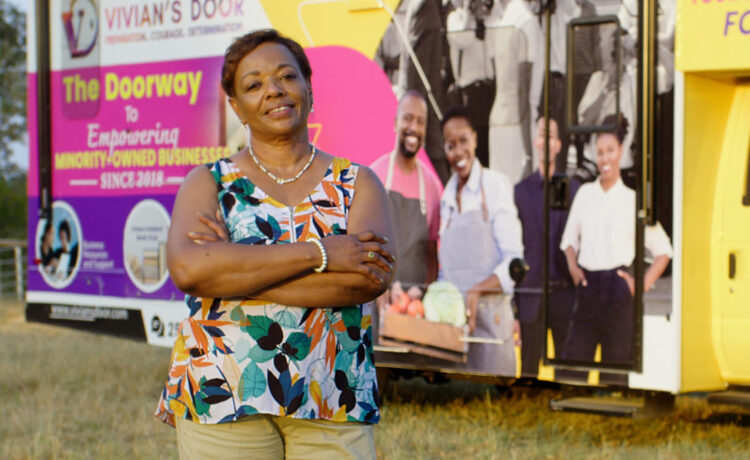Making the world a better place is a desire many of us give lip service to, but few have the prerequisites to deliver.
The five 2024 AARP Purpose Prize Award recipients did. The award, for people over 50 who have founded a nonprofit, came with a $50,000 prize in recognition and support of their work.
The Purpose Prize honorees are part of a surging movement of older entrepreneurs leading both for-profit and not-for-profit ventures. In 2021, nearly a quarter of entrepreneurs were 55-64 years old, up from 15% in 1996, according to a report by the Kauffman Foundation. Interestingly, the cohort of younger entrepreneurs shrunk. In 2021, 26% of new entrepreneurs were 20-34 years old, compared to more than a third in 1996.
This year’s Purpose Prize winners talked to Yahoo Finance about what motivated them as well as their challenges and rewards. Here are the highlights of those conversations.
Ken Falke, Boulder Crest Foundation, Bluemont, Va.
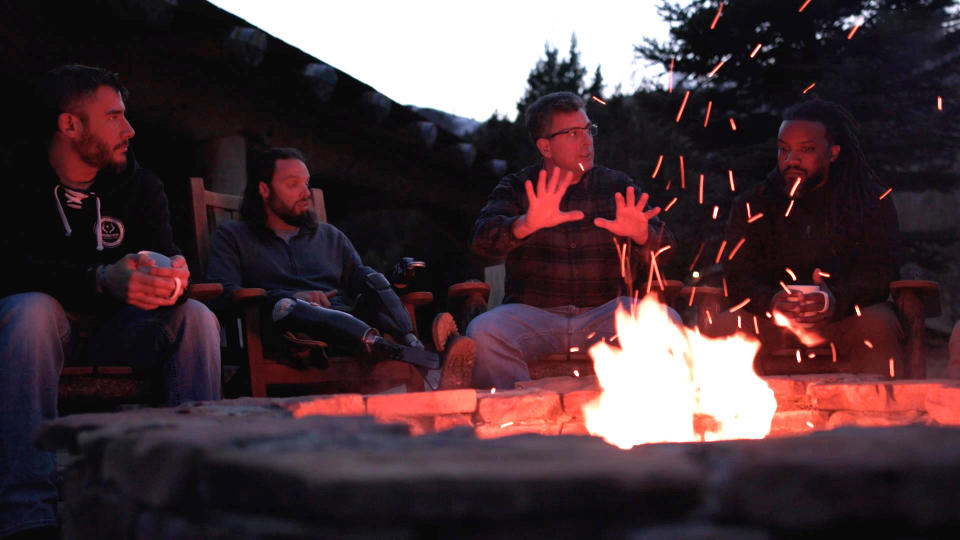

In 2010, Ken Falke, a 61-year-old US Navy veteran, and his wife, Julie, began to host families of wounded warriors at their home in Bluemont, Va. Three years later, the couple established the Boulder Crest Foundation, a nonprofit organization focused on veterans’ mental health, and donated 37 acres of their property to build a retreat. Since then, the foundation has offered support to 67,000 combat veterans, first responders and their families through its programs.
What was your biggest challenge in launching the Boulder Crest Foundation?
Getting our land rezoned to use for this purpose. We had to go through a lot of red tape to make it happen.
What were some of the unexpected rewards or surprises?
People come up to me after they’ve been here and say, “wow, you know, if it wasn’t for you guys, I wouldn’t be here.” For somebody to come through one of our programs and to say “this saved my life,” or for a mom to call me and say, “you saved my son’s life,” those types of things are probably the biggest rewards that we can get.
Did you finance the launch?
We donated the land and put up the first million dollars. That really helped us with our initial fundraising because a lot of our big donors appreciated the fact that we were standing there as one of them, that we had put up a lot ourselves, and they weren’t investing in just a good idea.
Ken, I know you’re directly impacting so many lives. What has this meant to you personally?
Having purpose in your life is super important. No matter what happens in your life, if you don’t have a purpose, it can make life really miserable. What we do at Boulder Crest really gives us not only purpose, but a mission every day. That’s something other than our family that really keeps us going.
Peter Jensen, The REACH Institute, New York, N.Y.
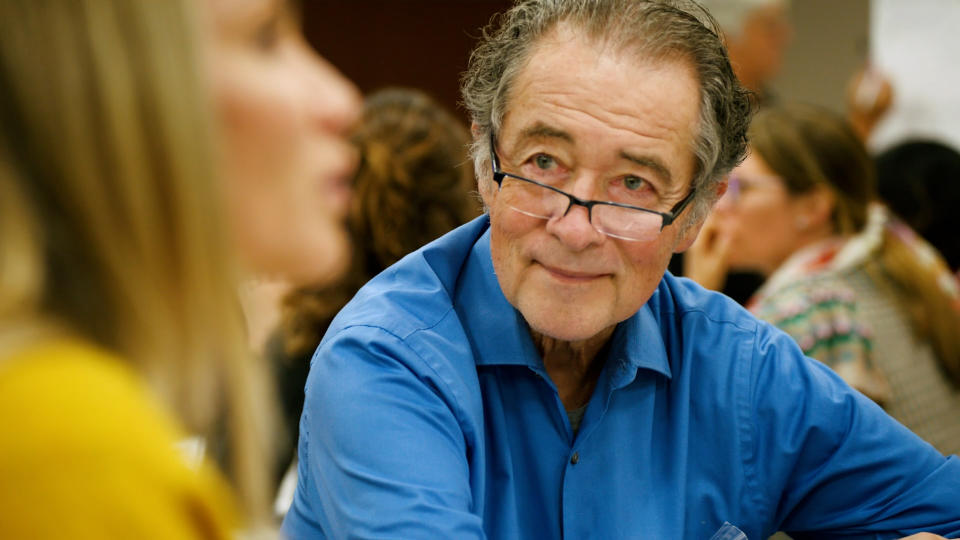

Dr. Peter Jensen, 74, former head of child psychiatry at the National Institute of Mental Health and founding director of the Center for the Advancement of Children’s Mental Health at Columbia University, has been on a mission to upend children’s mental healthcare.
Jensen founded the nonprofit The REACH Institute in 2006 to ramp up the children’s mental health workforce through comprehensive training for doctors and nurses.
“We have a drastic shortage of mental health expertise for children,” Jensen told Yahoo Finance. He found that the typical continuing medical education programs for doctors to renew their licenses were often just lectures and not a place to learn new skills to help them assess, diagnose and treat mental health problems. His institute set out to change that.
What was the biggest challenge for you in starting your initiative?
When we started 17 years ago, there was a lot of stigma about acknowledging mental health issues with children. And those willing to think about it, at least initially, said, well, wait a sec, why are you training pediatricians? Since we began, we’ve trained more than 6,000 pediatricians and other primary-care physicians in all 50 states to be “first responders” to children with mental health needs.
What that meant was I had to do a fair amount of education of potential donors. Now everyone knows there’s a crisis, but back in 2006, people thought, well, is that really an issue? Do kids really have mental health problems?
What unexpected rewards or surprises have come your way?
How much the general public has embraced the mission. They understand it now. To see the public acknowledge this has been very gratifying and now many more hands are working on the problem.
How hard was it to get money to launch?
That was difficult. We found that we could go to foundations, but they did not really totally see or appreciate and understand the mission. What was fortunate for us is that we had a good business model. And healthcare organizations understood the need and agreed to pay us to train their pediatricians and family practitioners.
What did starting this nonprofit mean to you personally?
It’s had a huge impact. As a kid, I wanted to be a doctor, and I was inspired by doctors who went to Africa and worked with poor populations. Albert Schweitzer was a very famous name going back historically. And I thought, I want to do that. I want to have a mission to serve people. And so when I became a doctor, that was the beginning. And then when I went to NIH, I remember how satisfied I was in the public health service. So when I left NIH I thought, I have to continue this mission. How do I serve the public? I didn’t realize I needed to form a nonprofit.
Janice Malone, Vivian’s Door, Mobile, Ala.
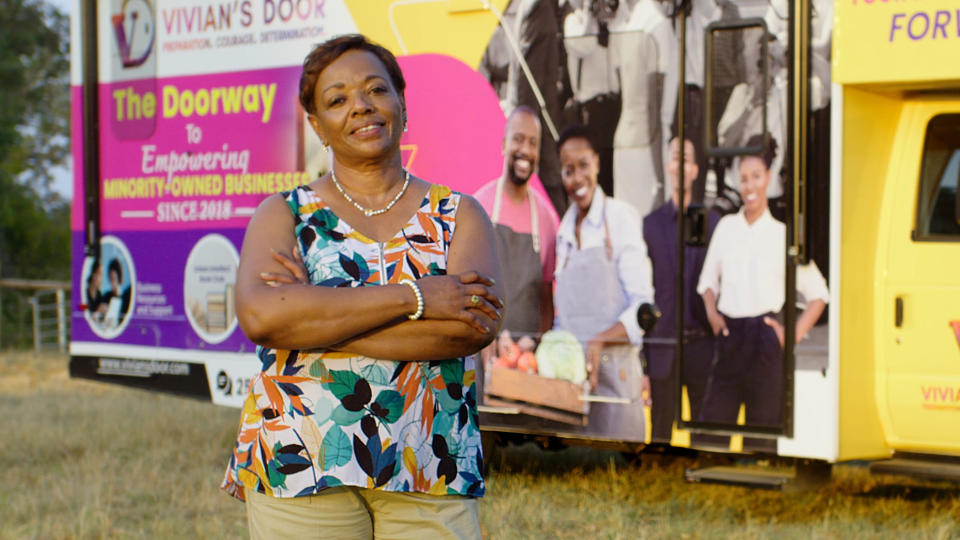

In 2018, Janice Malone, a serial entrepreneur, now 68, founded Vivian’s Door, a nonprofit that helps minority-owned businesses and small farmers grow and reinvest in their communities in South and Central Alabama. It provides business education and training through workshops, mentoring and networking sessions.
What was your biggest challenge?
Getting people to understand what I was doing and why it was needed. People just couldn’t seem to wrap their brain around why what I was doing was important or even necessary.
What were some of the unexpected rewards and surprises that have come your way since you were able to launch?
Once we started to build it out, people could begin to see what it was we were doing and then started to follow along with us, get connected. It was a journey that they wanted to be on. Also we were actually changing people’s lives. They were able to follow that dream that they had. To see it in action, it was amazing to see their lives changed by what we do.
Money is a stumbling block for so many startups. How difficult was it, Janice, to get the funds to get it going?
In the beginning, we had board members, and they started the initial funding and fundraising for us. We ran a crowdfunding campaign that helped us raise close to $10,000, and I also took money from my savings.
How has Vivian’s Door enhanced your own life?
Well, I think it’s made me become more purposeful and more authentic in what I do in my life and what I do for the lives of the people that I’m touching here. It’s almost surreal in some ways that I’m actually really doing this and people are getting a better chance.
Don Schoendorfer, Free Wheelchair Mission, Irvine, Calif.
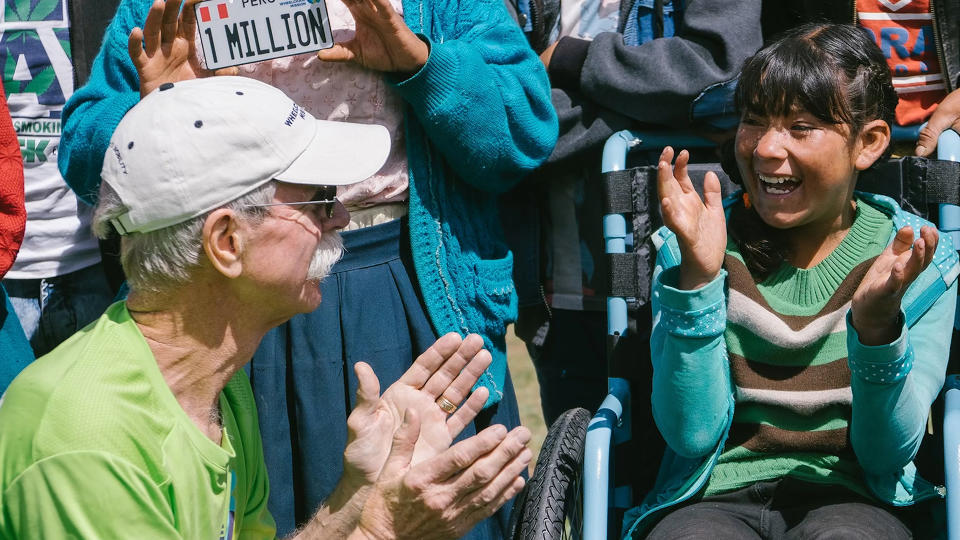

During a trip to Morocco in 1979, Don Schoendorfer, now 74, saw a woman with disabilities digging her nails into the ground as she crawled across a dirt road. People were stepping over her like she was not there, but gradually she got across the road.
That image clung to him for years.
Two decades later, Schoendorfer tapped his engineering background to design a wheelchair with mountain bike wheels and a plastic lawn chair mounted on a steel frame. It costs $96 to make, ship and deliver to someone in the developing world.
In 2001, he founded the Free Wheelchair Mission to keep building those wheelchairs. Since then the organization has shipped nearly 1.4 million wheelchairs to people living with disabilities in 94 countries who would not otherwise be able to afford one, according to Schoendorfer.
The World Health Organization estimates that about 80 million people in the world, or 1% of the population, need a wheelchair.
What was the biggest challenge in starting your nonprofit?
Giving up my career. I had a 25-year career in the biomedical engineering field. I had worked hard and had built a reputation and expertise there. It was a big risk to start an international wheelchair charity from scratch, especially since I didn’t have any knowledge on how to get started.
Since I didn’t know much about starting a nonprofit, many supporters came to me to offer their expertise in areas like shipping, logistics, finance, and so on. Some of those supporters eventually joined our board. I had to realize I couldn’t do it alone.
Unexpected rewards and surprises?
The people and the lives that have been transformed. Meeting for myself the people who receive the wheelchairs is life-changing. The moment of seeing them sit in their wheelchair for the first time and smile is unforgettable. I am struck by their joy and resilience despite the difficult circumstances they have faced. Each one is a new surprise.
How did you find the money to launch?
I started off by making 100 wheelchairs in my garage as a type of “clinical trial” that I funded myself. Then, I went on a church-funded mission trip to India where I distributed the first four of these wheelchairs. After that, money began literally showing up in my mailbox from people who wanted me to continue the work of giving out wheelchairs. Once I decided to start the nonprofit and shared about it with others, people began to give very generously. To this day, many of the people who supported me in the early days continue to give, which I am truly grateful for.
What did starting your nonprofit mean to you personally?
Starting this humanitarian charity was a clear direction from God on what I was supposed to do next in my life. For me, one of the greatest blessings is to have received this calling and to discover a purpose in my life using my talents to lift people into transformed lives through these wheelchairs. My prayer is that many others will follow their own calling and purpose to use their gifts to help others in need.
Laura Stachel, We Care Solar, Berkeley, Calif.
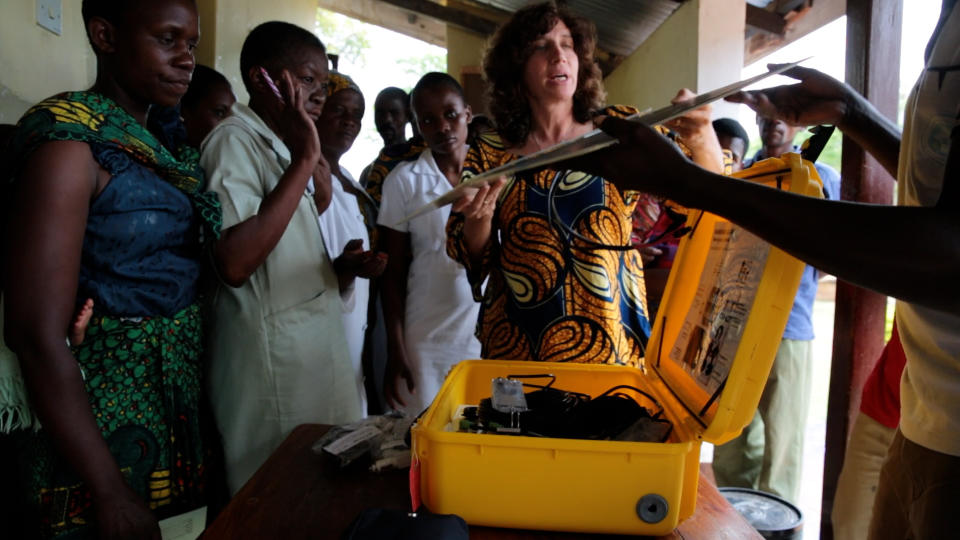

In 2008, Dr. Laura Stachel, an obstetrician, now 64, was doing research and working at a hospital in Nigeria when discovered first hand the lack of a reliable source of electricity during childbirth. Nighttime deliveries were in near-dark conditions. Cesarean sections were performed by flashlight.
She brought in her husband, Hal Aronson, a solar energy educator, and he designed a small off-grid solar electric system for the hospital where she was conducting research.
The next year, Stachel and Aronson co-founded We Care Solar, which provides health workers with “Solar Suitcases” that provide electricity to enable lighting, mobile communication, and power medical devices.
What was your biggest challenge?
Everything was a challenge. I knew nothing about starting a business. After spending time observing maternity care in northern Nigeria, I knew that health workers were struggling to provide life-saving services to mothers and newborns in health facilities lacking light and power. And that mothers and babies were dying from preventable causes.
I had to assemble a team that could design a portable solar electric system tailored for health care that could be manufactured at scale; figure out a way to ship and distribute these to last-mile health centers, identify partners who could help us locate energy-poor health centers in need, train technicians to install and maintain solar electric systems, and monitor and evaluate our programs.
I needed someone who understood business and finances, someone who could oversee programs, and others who could help with research and fundraising. This was the biggest learning curve of my life.
Unexpected rewards and surprises?
I was surprised that solar electricity could have such enormous impact. After equipping the first hospital with solar electricity, maternal deaths decreased by 70% the next year.
My husband and I turned our home into an assembly plant for compact solar electric systems that could fit inside a suitcase. Friends and neighbors would come over and help us build Solar Suitcases. We would hold fundraising parties and buy more parts. Eventually demand outgrew our capacity to respond and we decided to form a nonprofit.
How did you find the money to launch?
Our first funds came from winning competitions. We won prizes from UC Berkeley (where I was a graduate student at the time), and received funding from the Blum Center for Developing Economies, as well as individuals who shared our passion for lighting up safe childbirth. Our most significant funding came from the MacArthur Foundation who gave us a grant to design a Solar Suitcase that could be manufactured at scale, and to test the impact of this technology on maternal healthcare in Nigeria.
What did starting your nonprofit mean to you personally?
I had been an Ob/Gyn for 14 years before starting this, and I loved my job. A back injury ended my clinical career, and it was devastating to lose the ability to care for mothers and newborns.
Starting a nonprofit with a mission to save lives in childbirth with clean energy gave me a sense of purpose. It showed me that there was another way to make a tangible difference in the world, with the potential to impact more lives than I ever could have done in my private practice.
By this point, We Care Solar has equipped more than 8,500 health centers with reliable light and clean solar power, improving working conditions for 35,000 health providers, and serving more than 14 million mothers and newborns. The stories we hear each week from midwives and doctors around the world remind us that our mission is vitally important.
Kerry Hannon is a Senior Columnist at Yahoo Finance. She is a workplace futurist, a career and retirement strategist, and the author of 14 books, including “In Control at 50+: How to Succeed in The New World of Work” and “Never Too Old To Get Rich.” Follow her on X @kerryhannon.
Read the latest financial and business news from Yahoo Finance

